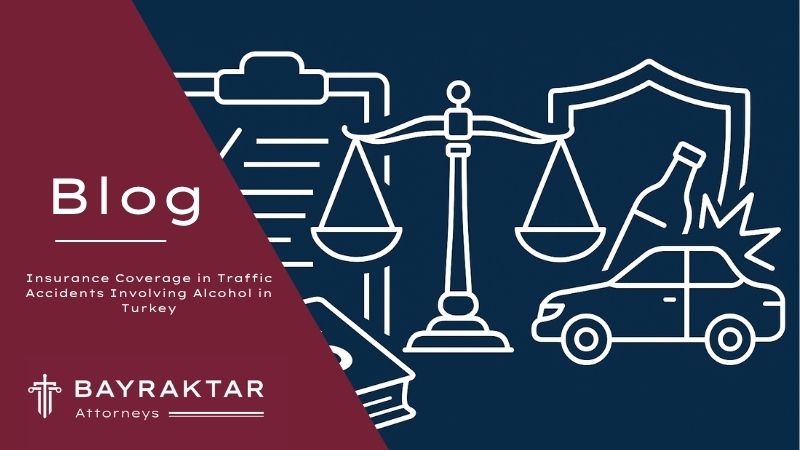
In Türkiye, driving under the influence of alcohol is strictly prohibited beyond certain legal limits, as regulated by the Highway Traffic Law and related legislation.
When a driver involved in a traffic accident is found to be over the legal blood alcohol content (BAC) limit, insurance companies frequently attempt to exclude the resulting damage from coverage.
They may also seek to recover any payments made from the insured. However, according to established case law from the Court of Cassation (Yargıtay), liability exclusions must be examined in light of whether the accident was directly caused by the driver’s intoxication.
Without such a causal link, the insurer's liability does not automatically cease.
Legal Alcohol Limit in Türkiye
Under Article 48 of the Highway Traffic Law (2918 Sayılı Karayolları Trafik Kanunu), it is forbidden for individuals who have consumed alcohol to the extent that it impairs their ability to drive safely to operate a motor vehicle.
The Highway Traffic Regulation, specifically Article 97, further clarifies that drivers with a BAC above 0.50‰ are considered unfit to drive.
Insurance Companies’ Position
Insurance companies often rely on General Conditions of Compulsory Liability Insurance, particularly Clause B.4.d, which allows insurers to deny coverage and seek recourse (rücu) if:
The accident occurred while the driver was under the influence of alcohol or narcotics, and
The impairment caused the accident.
However, Turkish courts, including Yargıtay, consistently rule that being over the legal BAC limit does not automatically mean the accident was caused by alcohol. There must be clear causation — a direct and exclusive connection between the intoxication and the accident.
The Role of Expert Reports
The presence of alcohol in the driver’s system is not sufficient to exclude insurance coverage unless it can be proven that the accident was caused solely due to intoxication. Courts require a detailed expert report from a panel typically composed of:
A traffic accident reconstruction expert
A legal expert
A neurology specialist
This panel must evaluate whether the accident occurred solely due to alcohol, or whether other factors played a role.
Key Yargıtay Decisions
1. Yargıtay 17th Civil Chamber Decision – 11.06.2013, E.2013/6925, K.2013/8892
The court stated that a BAC over 0.50‰ does not alone justify denial of coverage. It emphasized that the insurer must prove that the accident occurred exclusively due to alcohol, and noted that even the regulation imposing the 0.50‰ limit lacked an adequate legal basis if not connected to the statute.
2. Yargıtay General Assembly of Civil Chambers – 14.12.2005, E.2005/11-624, K.2005/713
In this decision, the court reiterated that insurers must prove the accident occurred solely due to intoxication. Merely being under the influence is insufficient, and courts must consult expert panels before denying claims.
3. Yargıtay General Assembly – 23.10.2002, E.2002/11-768, K.2002/840
This decision emphasized that the insurer must prove the accident was exclusively due to alcohol. The presence or absence of fault by other drivers is irrelevant in a casco insurance claim if the intoxication was not the sole cause.
Legal Implications for Insured Drivers
Yargıtay's well-settled jurisprudence makes it clear that:
The insurer bears the burden of proof (under Article 1281 of the Turkish Commercial Code).
If causation is not established between alcohol use and the accident, the insurer must still compensate for the damages.
Denying coverage based solely on BAC level without causation is insufficient and unlawful.
Conclusion
Under Turkish law, the presence of alcohol in the driver’s system does not, by itself, release the insurer from liability.
At Bayraktar Attorneys, we provide legal representation for policyholders in disputes involving motor insurance and claims denied due to alleged alcohol-related exclusions.
Our team ensures that your rights are protected, especially when insurance companies attempt to deny rightful compensation without proper proof of causation.
Recently Added Blogs



.png)
.png)
.png)
.png)
